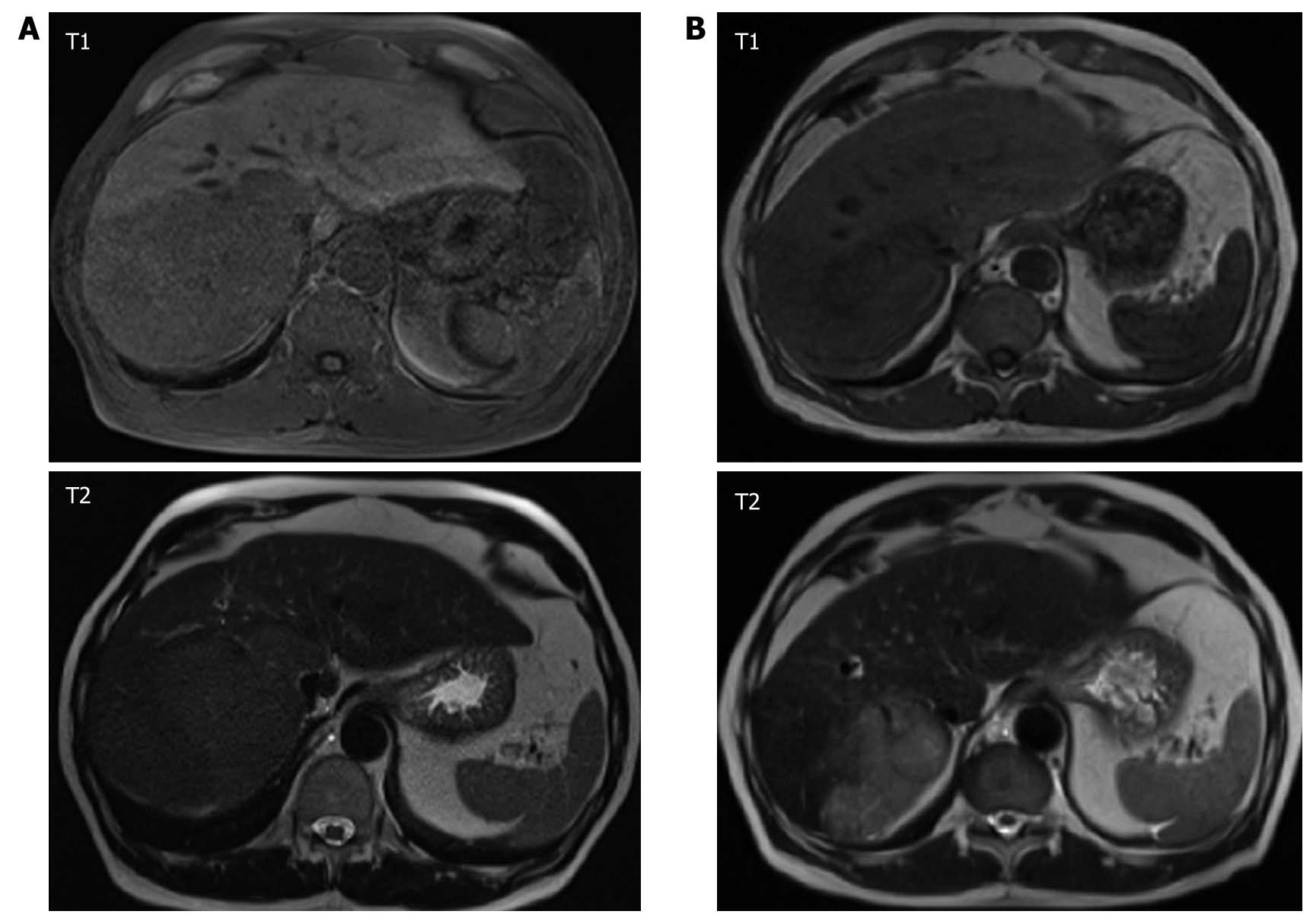Copyright
©2011 Baishideng Publishing Group Co.
World J Gastroenterol. Jul 14, 2011; 17(26): 3075-3081
Published online Jul 14, 2011. doi: 10.3748/wjg.v17.i26.3075
Published online Jul 14, 2011. doi: 10.3748/wjg.v17.i26.3075
Figure 1 Dynamic gadolinium-enhanced magnetic resonance imaging (MRI; T1, T2 weighting), in a 67 year old patient with hepatocellular carcinoma evolved from liver cirrhosis due to hemochromatosis (A) before initiation of anti-angiogenic therapy and (B) after 70 d or three cycles of transarterial chemoembolization and continuous administration of sorafenib, respectively.
Patient showed partial response according to RECIST criteria. Serum alfa-fetoprotein level decreased from 276 to 115 ng/mL.
- Citation: Welker MW, Trojan J. Anti-angiogenesis in hepatocellular carcinoma treatment: Current evidence and future perspectives. World J Gastroenterol 2011; 17(26): 3075-3081
- URL: https://www.wjgnet.com/1007-9327/full/v17/i26/3075.htm
- DOI: https://dx.doi.org/10.3748/wjg.v17.i26.3075









